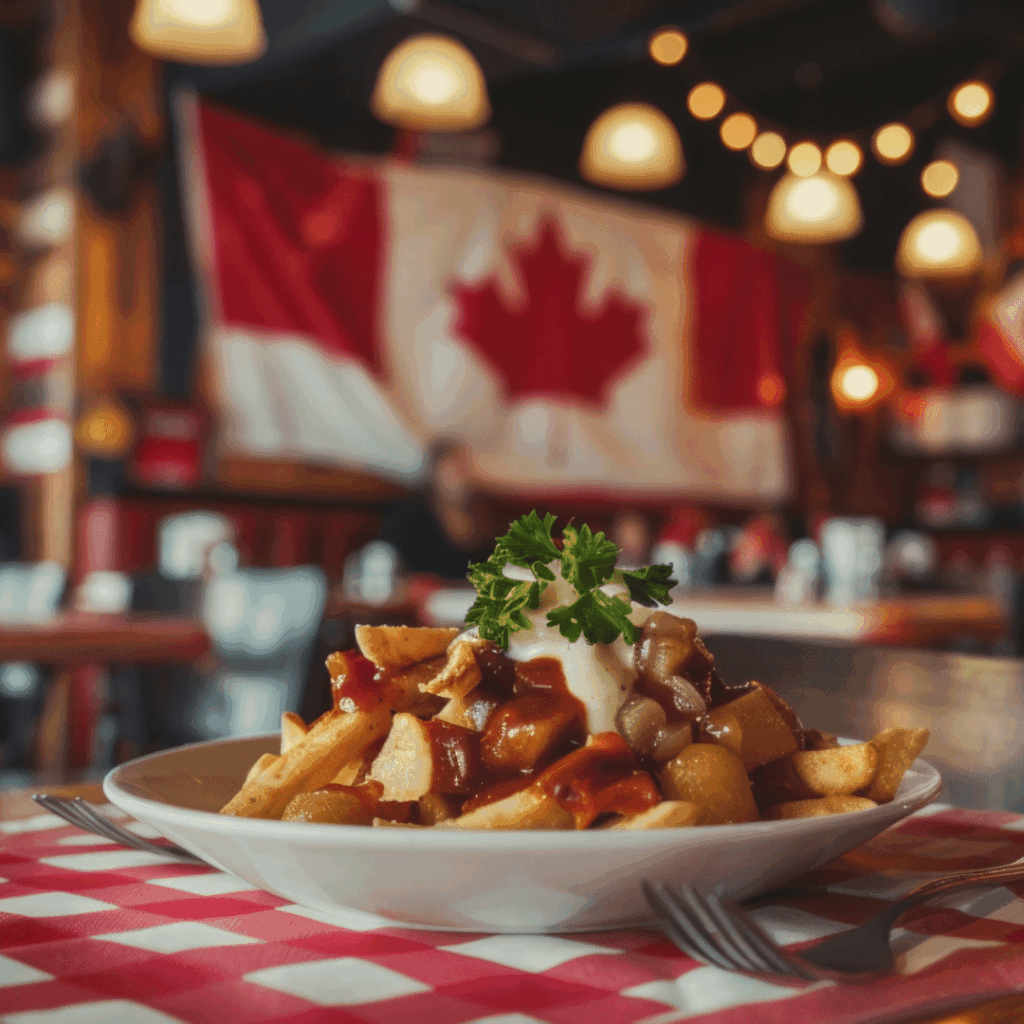

Discovering Canadian Food Specialties: A Culinary Journey for Restaurants
Canada, known for its stunning landscapes and multicultural tapestry, also boasts a rich and diverse culinary heritage. Canadian cuisine is a delightful fusion of traditional Indigenous foods, European influences, and immigrant flavours. For restaurant owners looking to introduce Canadian specialties to their menu, here are some must-try dishes that capture the essence of Canada’s unique gastronomic landscape.

1. Poutine: The Quintessential Comfort Food
No discussion of Canadian cuisine is complete without mentioning poutine. Originating from Quebec, this dish consists of crispy French fries topped with fresh cheese curds and smothered in savoury gravy. The beauty of poutine lies in its simplicity and the endless variations it offers. Restaurants can elevate this classic by adding toppings like pulled pork, smoked meat, or even truffle oil for a gourmet twist.

2. Butter Tarts: A Sweet Delight
Butter tarts are a quintessential Canadian dessert that has been a staple in Canadian households for generations. These small, flaky pastries are filled with a rich, buttery, and gooey mixture made from butter, sugar, and eggs. Some variations include raisins or pecans. The balance of sweetness and buttery richness makes them a perfect dessert for any menu.

3. Tourtière: A Hearty Meat Pie
Tourtière is a traditional French-Canadian meat pie, typically enjoyed during the holiday season but cherished year-round. This savoury pie is filled with a mixture of minced pork, beef, or veal, and seasoned with a blend of spices like cinnamon, cloves, and allspice. It’s an ideal comfort food, perfect for showcasing on a winter menu or as a hearty dinner option.

4. Nanaimo Bars: A No-Bake Treat
Named after the city of Nanaimo in British Columbia, Nanaimo bars are a no-bake dessert that consists of three decadent layers: a crumbly base made of graham crackers, cocoa, and coconut; a custard-flavored butter icing in the middle; and a smooth layer of chocolate ganache on top. Their rich and creamy texture makes them an irresistible treat.

5. Peameal Bacon: A Canadian Breakfast Staple
Peameal bacon, often referred to as “Canadian bacon,” is a must-have on any Canadian-inspired breakfast menu. Unlike its American counterpart, peameal bacon is wet-cured, unsmoked back bacon rolled in cornmeal. It’s juicy, tender, and often served as part of a classic breakfast sandwich or as a protein-packed addition to brunch plates.

6. Maple Syrup: The Liquid Gold of Canada
Canada is the world’s leading producer of maple syrup, and this “liquid gold” can be found in many Canadian dishes. From drizzling over pancakes and waffles to using it as a glaze for meats and vegetables, maple syrup adds a distinct, sweet flavour that can elevate any dish. Restaurants can get creative with maple syrup by incorporating it into sauces, desserts, and cocktails.

7. Bannock: A Versatile Indigenous Bread
Bannock is a type of flatbread that holds a special place in Indigenous Canadian cuisine. It’s versatile and can be served in various ways: fried, baked, or even grilled. Bannock can be a perfect accompaniment to soups and stews or served on its own with a dollop of jam or honey. Its simple preparation and hearty texture make it a wonderful addition to any menu.

8. Montreal-Style Bagels: A Unique Twist on a Classic
Montreal-style bagels differ from New York bagels by being denser, sweeter, and smaller, with a larger hole in the middle. They are boiled in honey-sweetened water before being baked in a wood-fired oven. Whether with classic toppings like cream cheese and smoked salmon or more inventive pairings, offering Montreal-style bagels can add an authentic Canadian touch to any breakfast or brunch menu.
Incorporating these Canadian food specialties into a restaurant’s menu can provide patrons with a unique and memorable dining experience. From the savoury comforts of poutine and tourtière to the sweet indulgence of butter tarts and Nanaimo bars, Canadian cuisine offers a delightful array of flavours and textures. By celebrating these dishes, restaurants can introduce their customers to the rich culinary heritage of Canada and create a distinct niche in the competitive food industry.


